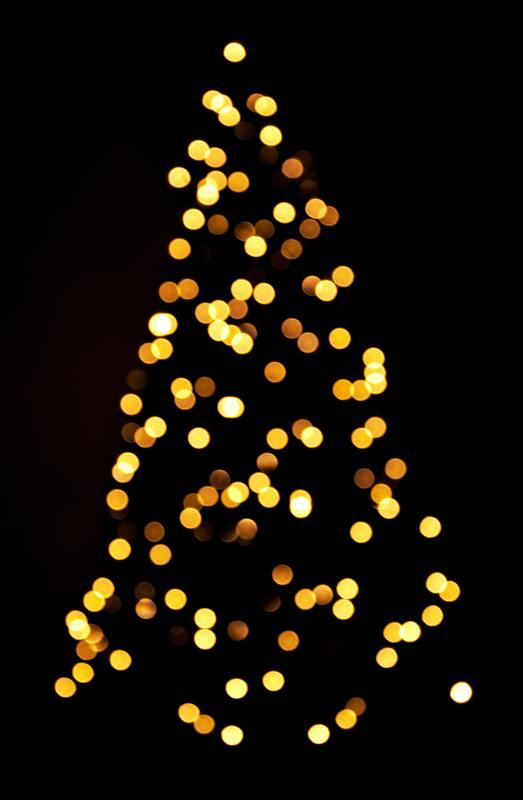By Melissa Walsh
"... new life starts in the dark. Whether it is a seed in the ground, a baby in the womb, or Jesus in the tomb, it starts in the dark." ― Barbara Brown Taylor in Learning to Walk in the Dark It was days before our first Christmas without their dad, in our so-called “broken home.” My oldest son was three. My twin sons were two. The divorce was final the previous April. It was 2000. I grieved my marriage and the dreams that died with it. I was sleep-deprived; any sleep I could find came with crying myself into it. I was afraid for my and my sons’ future. I was in a darkness that comes with despair. Then a mysterious light broke through December 23, warming me in its power. Darkness and Light My church's divorce from me following my divorce from my husband made despair's darkness even colder. I hadn't stopped loving him. I did it as a last resort, after years of his lies, betrayals, apologies. I did it as a means of protecting our home and family from his addiction and the activities his addiction generated. I needed to protect our home from being taken due to his selling drugs, as an attorney in the church had told me, his advice unsolicited by me back in 1999. My pastor, whom I had confided in for counseling, had told this attorney, who also was a church elder, about my crisis. The irony, as I discovered when the divorce became final, was that the body of church elders (men, no women) also had discussed my situation and they came to a consensus of denouncing my decision. Whatever they had used as discovery did not include speaking with me. Perhaps they concluded that I had happily filed for divorce, that I had gleefully decided to go it alone with three babes and a full-time job. I was kicked out of a Sunday morning study group of congregants my age, a group I had founded with two friends years earlier. They loved the addict more than me, I learned later. Nonetheless, I continued bringing my sons to church each week, not an easy task walking past people I’d known for decades, who pretended not to see me, to drop the boys off in their toddler class and then walk to the sanctuary to sit alone in a pew, listening to sermons about Jesus: Jesus speaking with the Samaritan woman, Jesus' lesson of the widow’s mite, Jesus' teaching on the Beatitudes, and Jesus' humble birth to impoverished, unwed parents. I felt like a widow grieving the walking dead. I wore a veil, invisible to a world indifferent to my loss, concealing eyes that ached from crying. One only had to look me straight in the eye to see beyond the defiant veil, and three women in the church did. They looked and saw angst and heartbreak. An elderly woman I had never spoken with previously but had often seen over the years stopped me in the lobby as I was leaving the sanctuary one Sunday when the divorce was still raw. She led me to a private corner in an adjoining room. She burst into tears and hugged me. “I was married to an alcoholic,” she said. We hugged and cried for a few minutes. Speaking through the sobs was difficult, but we understood the cry of each other’s heart. Afterward, I went to a restroom, washed my face, pulled the proverbial veil over my eyes again and went to the toddlers’ classroom to get my sons. I returned home feeling comforted. Another woman in the church, some 30 years older than me, a woman who had been my Sunday School teacher when I was a child, called me periodically to see how I was doing and to pray with me. She gave me the opportunity to again cry with someone. At the time, she led a Sunday morning study group of married couples who were 10 to 20 years older than me; she invited me to join the group. I accepted and she led the group in welcoming me. Attending church became less painful. (About a decade or so later, the body of elders forced her to step away as leader of this group. Her only infraction was being female while leading males in Bible study.) The third woman who showed me love was a woman my age. She was from a family of new wealth and exceptional generosity. She had been caring for a son a year older than my oldest, who was born with painful birth defects. Despite her struggle to meet her son’s needs for round-the clock care, which she was in the throes of at the time, she found the strength of kindness to bring me and my boys Love’s light. She checked on me from time to time that year. A few days before that Christmas, she popped over with her son, who handed each of my sons a wrapped gift — inside an adorable kid’s watch. She handed me a small gift-wrapped box with a tag addressed to “Mom” from my sons — inside a charm bracelet. Out of a church membership of more than three hundred, these three women modeled Love for me, generously, humbly, discretely. Most others in the church were indifferent toward me; some were openly hostile. Eventually I walked out of that church for good, one Sunday in 2001, in the middle of a sermon about caring for widows and orphans. After leaving the church, C.S. Lewis became my mentor on faith and philosophy. I read everything Lewis, crawling deeper into Narnia for comfort and healing. Believing My embrace of Lewis’ mystical universe was likely triggered by my new-found belief in Santa on December 23, 2000. Weeks earlier, the Sunday before Thanksgiving, a woman from the group I was kicked out of had asked if I would like a Thanksgiving basket — one of those baskets church ladies give to single moms as charity, with photo opp. I declined. I wanted to ask, but didn't, “If you think that I’m in such dire straits that I can’t afford to feed my family, then why haven't you spoken with me about it?” Thankfully, during this crisis (which would be followed by more crises over the next twenty years), I was able to provide shelter and food for my sons, and childcare, which cost me about $80 per day at the time. Finding the time and money for Christmas shopping, however, was an extreme challenge. On December 23, when I opened my front door to retrieve the mail, I found a large plastic bag on my porch. It was tied with a large red ribbon, attaching a tag addressed to my boys, "from Santa.” Inside were toys, an abundance of toys for me to wrap and tag as from Santa. My sons mattered to Santa. I called the women from the church who had showed me love over the past several months. They swore the toys did not come from them and that they did not know whom they were from. I made other calls, to friends, to people from work, to my mom, asking for clues about this Christmas surprise. No one had a clue. I still don't know the identity of this Santa, but I continue to carry a belief in the spirit of Love’s light in the dark that this Santa brought me. It is Santa power, mine and others’, that carried me through my incredible, wild journey of raising my sons. Santa power is Grace. What I have taken away from my journey is that God does indeed allow some of us more than we can handle alone. And therefore a responsibility rests on community to reverse the gravity of crisis with Grace's power to ease the load of the burdened.
Like what you've read? Become a supporter.
Thank you.
0 Comments
Leave a Reply. |
Categories
All
Like what you've read? Become a supporter.
Thank you.
Archives
June 2023
|

 RSS Feed
RSS Feed
